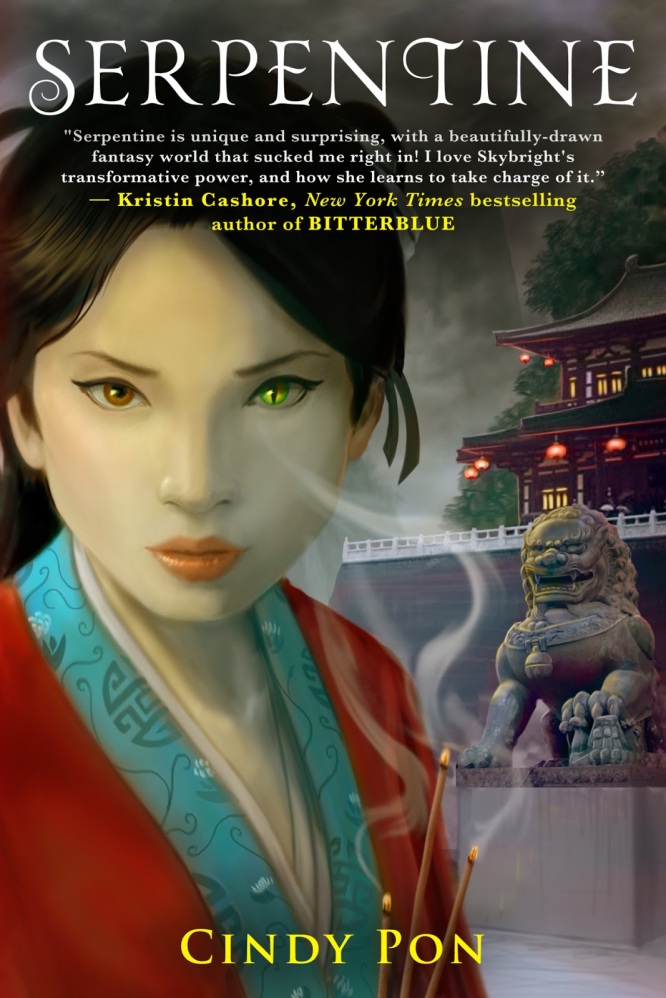Full disclaimer up front, I think Cindy Pon is an awesome person and I heart her across the board. She’s full of take no crap, eagerness for change and a “you can’t stop me” spirit. I’ve had the pleasure of getting to hang with her in person just having regular convo (how many of us get to do that with legit authors?). So yea now that my gushing is out of the way let me get to my thoughts on the novel.
SERPENTINE has many of the classic YA elements with its confused teenagers going through growing pains, physical awakenings, new loves and the likes. Which is all what you expect from a YA book and Cindy pulls off each of those with the skill of someone well seasoned in the genre. She’s a pro and it shows.
But what makes the novel soar for me is the authentic nature of the culture presented and the voice given to it. This is the thing I think the “you can write whatever you want” crowd fails to realize. Yes, you can and should write whatever you want but certain things have to be experienced to get the real flavor of them. They have to be endured to make it come to life on the written page. This novel is full of those moments that I think someone with an “outside gaze” would not have been able to pull off.
One part of the novel in particular really struck me as an #ownvoices sort of moment. The enigmatic character of Stone with his immortal powers was able to change the garments of the main character, Skybright. She notes that the fancy garments she’s been given are a century out of fashion. How many people not engrossed in this culture would know what’s in and out of style for people hundreds of years removed? That is an intimate detail. You don’t come across that with a quick Google search. It was a couple of lines but it added such a richness to the story.
There’s also a bit of subtext here about the collusive nature of religion in regards to keeping society in a certain state which I enjoyed a good bit. It didn’t get preachy and really is just simmering under the surface, but I caught a sniff of it. I enjoy that kind of subtle takedown in a work.
In short, this a story with layers. It doesn’t try to be flashy with its cultural elements and that’s because it is coming from someone who actually engrossed in it. That’s the difference. Those of us with marginalized identities treat those identities with normality and not something to be gazed at with wonder. SERPENTINE is all the better for it.

